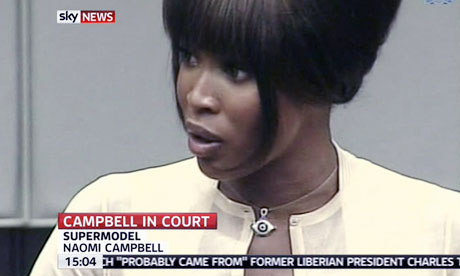Campbell privacy measure raises concern

The barring of photographers from picturing the supermodel at the Hague highlights the clash between privacy and free expression. Simon Jennings reports
(more…)

The barring of photographers from picturing the supermodel at the Hague highlights the clash between privacy and free expression. Simon Jennings reports
(more…)
The US government has introduced new legislation which would allow the FBI to demand personal information from private email accounts. The bill would enable FBI field officers to access information regarding the times and dates emails were sent, as well as the private email addresses of correspondents. The FBI would not need to possess a court order and would simply need to deem the information relevant to demand private details from internet providers. ISP’s would be forced to keep the requests secret.
The Press Complaints Commission today published its Governance Review. The report was produced by an independent panel commissioned last year by the PCC’s new chairman, Baroness Peta Buscombe. It was designed to rebuild public confidence in the press regulator. The panel, led by Vivien Hepworth makes a number of recommendations including:
The report was welcomed by the Media Standards Trust as a substantive response to the trust’s submission to the panel and to their 2009 report A More Accountable Press, which called for urgent reform to the self-regulation system.
Martin Moore, director of the Media Standards Trust said he was pleasantly surprised by today’s report describing it as:
[A] good start. There are substantive recommendations here to ensure some real change — provided the PCC and the industry accept them and make them happen.
He went on to say:
It is now for the industry to decide how much support to give to real change. Without real change the gap between self-regulation and the courts will continue to grow, and the current system will look increasingly anachronistic in a converged media world.
Roy Greenslade in the Evening Standard noted that:
The words transparency and accountability crop up 12 times each in the report, while effectiveness occurs 20 times. There is also an accent on ‘clarity of purpose’. The clear aim is to tell the PCC’s story to the public and to those troublesome opinion-formers.
He seems to doubt the PCC will ever win over its critics. The “lawyers, politicians, academics and even some journalists rule the media space by asserting that the PCC regulates with too light a touch. “
Forget the stereotypical images of old women gossiping to their neighbours over the garden fence, rumours of celebrity scandal were spreading like wildfire last night amongst London’s legal elite. Journalist and leading legal commentator Joshua Rozenberg chaired a seminar with media specialists William McCormick QC and Amber Melville-Brown, OK! social editor Mark Moody and former Apprentice star Lorraine Tighe to discuss recent developments in privacy law. However, it did not take long for the panel to start talking about the buzz circulating the net that offers an explanation for England’s dismal World Cup campaign.
Like the panel members, Index is not at liberty to fully spill the beans given the UK’s uncertain privacy laws but a quick search on Google or Twitter by more technologically astute readers will satisfy your curiosity. If you still need a helping hand we can offer a clue – it’s not drugs and it’s not rock and roll. Expect the Red tops to have a field day on Sunday when, in the words of one panel member, “it’s gonna hit the fan”. The seminar was entitled “I’m a celebrity get me some privacy!” but somewhat ironically, the audience left the event grabbing for their blackberries eager to find out the juicy details. It just goes to prove that everyone, regardless of colour, religion or creed just loves hearing a good bit of dirt.
“I’m a celebrity get me some privacy” was organised YN Lawyers committee to raise funds for Norwood, a leading UK charity supporting people with learning disabilities and children and families in need